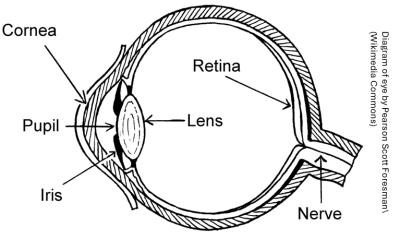Neurodiversity information for parents and young people
Why you have this appointment
We have invited you to have an eye examination at the Royal Eye Unit because your doctor has prescribed you a medication called hydroxychloroquine (Plaquenil).
About hydroxychloroquine
Hydroxychloroquine is a drug with anti inflammatory properties. We often use it to treat inflammatory diseases such as systemic lupus erythematosus (SLE) or rheumatoid arthritis (RA).
We do not recommend hydroxychloroquine for people who experience other problems in the retina (such as age related macular degeneration).
Why you need an eye check
One of the possible side effects of hydroxychloroquine is damage to the retina. The retina is the light sensitive layer of the back of the eye that allows you to see.
Recent studies estimate that around 7.5% of patients using hydroxychloroquine may have some signs of damage in the back of their eye after 5 years of use.
This is why the Royal College of Ophthalmologists recommends eye checks for patients using hydroxychloroquine.
To detect early signs of damage, we examine the back of your eye (before it affects your vision). By detecting the side effects of hydroxychloroquine early, we can make recommendations to your doctor to stop the use of this drug before it causes serious damage to your vision.
Your eye examination will help us to detect other conditions that can affect the retina and may not have been diagnosed before.

What happens during your appointment
You can expect the following during your visit. It will take 1 to 2 hours.
![]()
You will not be able to drive after your appointment so take this into account when planning your visit.
- You will see a technician, nurse or an optometrist (a healthcare professional who specialises in the eyes and vision). They will ask you questions about your use of hydroxychloroquine, your medical history, your weight and your current medications. Bring a list of your current prescriptions with you.
- We will test your vision by asking you to read a series of letters.
- A nurse or an optometrist will administer eye drops to your eyes to dilate your pupils (make your pupils bigger so we can examine the back of your eyes). This will make your vision blurred for 4 to 6 hours.
- We will take a series of photographs and scans of your retina.
- Be aware that you will not see an eye doctor during your appointment.
After your appointment
After your visit, a senior eye doctor will analyse your tests and clinical information.
They will send a report to you, to your GP and to the doctor who prescribed your hydroxychloroquine. You can expect to receive the report within approximately 4 weeks.
Frequency of follow up eye checks
Every patient is different, but it is rare for someone to develop problems in their retina during the first 5 years of treatment with hydroxychloroquine.
After using hydroxychloroquine for 5 years, most patients need to attend once a year.
![]()
Let us know if you stop using hydroxychloroquine. This may mean that you do not need further eye checks.
More information
Contact information
Kingston Hospital Royal Eye Unit
Kingston Hospital
Galsworthy Road
Kingston KT2 7QB